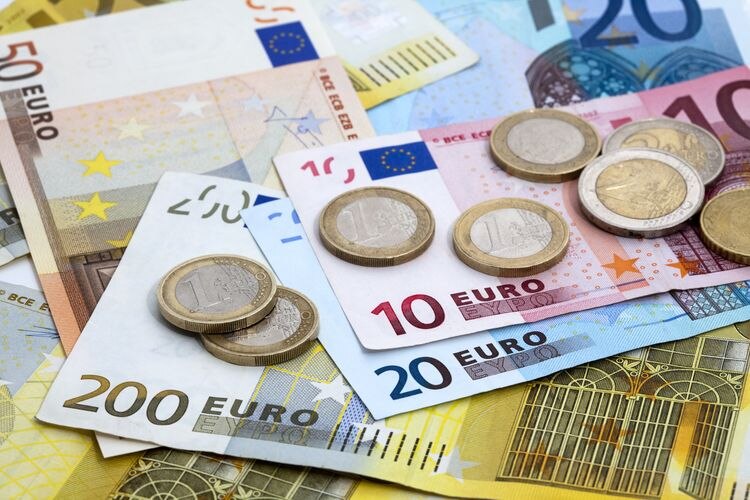-
2026/04/01
New York(JFK) -
2026/04/08
Berlin
(Updated: September, 16, 2025 17:05)
Germany Travel Tips and Information
Official Name
Federal Republic of Germany
Capital
Berlin
Population
Country Code
Approximately 80 million
DE
Country Code (international calls)
+49
The flight time to Germany is approximately 8 hours. Check the climate, currency, religion, manners, other information of Germany below. Wishing you pleasant travels to Germany.
Germany is located in Central Europe, sharing borders with nine countries, including Austria, Switzerland, and France. The country's terrain is divided into five regions based on geographical features, such as the North German Plain and the Central Uplands.
Compare Airfares for Flights to Germany
Compare Airfares for Flights to Germany
Compare Airfares for Flights to Germany
Compare Airfares for Flights to Germany
Compare Airfares for Flights to Germany
Local Climate / Weather
Germany has a temperate seasonal climate, with warm summers and cold winters. Spring (March to May) brings mild temperatures and blooming flowers, while summer (June to August) is warm and ideal for outdoor activities. Fall (September to November) sees cooler temperatures and vibrant autumn foliage, while winter (December to February) is cold, with temperatures often dipping below freezing, especially in the southern regions.
Currency & Tipping
Currency
・Germany uses the Euro (€) as its official currency. As of now, the Euro is subdivided into 100 cents. When traveling, it's advisable to check the current exchange rate to budget your expenses effectively. Major credit and debit cards are widely accepted in most establishments, but having cash on hand is useful for smaller shops, markets, and restaurants. ・Currency Exchange: You can exchange at banks, currency exchange offices, or airports. Be mindful of service fees and exchange rates, which may vary between locations. ・ATMs: Using ATMs to withdraw cash in Euros is often a convenient option. Check with your bank regarding international withdrawal fees and daily limits.
Tipping
Tipping is customary in Germany, but it is generally more modest compared to some other countries. Here are some key points for travelers to keep in mind: ・Restaurants: It’s common to round up the bill or leave about 5% to 10% of the total as a tip for good service. When paying by card, you can inform the server of the total amount you wish to charge, including the tip. ・Cafés and Bars: For small purchases, such as coffee or drinks, rounding up to the nearest Euro or leaving a small tip (around €1) is appreciated. ・Taxis: Tipping taxi drivers is also common. Rounding up to the nearest Euro or adding a couple of Euros for longer rides is considered polite. ・Hotel Staff: For hotel staff, such as bellhops or housekeeping, a tip of €1 to €2 per service is appreciated.
Useful Travel Information

Voltage & Electrical Outlets
Germany operates on a 230V supply voltage with a frequency of 50Hz. The power plugs and sockets used are of type C and F (also known as "Schuko" plugs), which have two round prongs. If your devices use a different voltage or plug type, consider bringing a universal adapter and a voltage converter to ensure compatibility.

Internet Connectivity
Germany has a robust internet infrastructure, with Wi-Fi widely available in hotels, cafés, and public spaces. Most urban areas offer free Wi-Fi access, but be cautious about using public networks for sensitive transactions. For continuous access, consider purchasing a local SIM card or using an international roaming plan from your mobile provider.
Water for Consumption (Drinking Water)
Germany boasts high-quality tap water, which is safe to drink in most areas. In fact, the country has strict regulations regarding water quality. Travelers can confidently fill their water bottles at public fountains or taps. If you prefer bottled water, it’s readily available in supermarkets and convenience stores.
Culture, Religion & Social Etiquette
Culture
Germany is renowned for its rich cultural heritage, featuring famous festivals like Oktoberfest, traditional folk music, and a strong appreciation for the arts, making it a vibrant destination for cultural exploration.
Religion
The predominant religions in Germany are Christianity, with a significant division between Protestantism and Catholicism; however, the country is also home to diverse faiths, reflecting its multicultural society.
Social Etiquette
When interacting with Germans, it's important to be punctual, use formal greetings, and respect personal space, as politeness and direct communication are valued in social and professional settings.
Major Tourist Attractions & UNESCO World Heritage Sites
Major Tourist Attractions
Germany offers a variety of themed travel routes, such as the Romantic Road, the Castle Road, and the Fairy Tale Route. Notable cities worth visiting include Lübeck, known as the "Queen of the Hanseatic League," Dresden, celebrated as a city of art, and Cologne, famous for its iconic cathedral. Germany's central location also makes it an ideal base for traveling to other countries in Northern Europe by land.
UNESCO World Heritage Sites
Germany currently has 39 UNESCO World Heritage Sites. Among these, only three are natural heritage sites: the Fossil Site at Messel Pit, the Primeval Beech Forests of the Carpathians and Ancient Beech Forests of Germany, and the Wadden Sea. Notably, the latter two extend across neighboring countries. On the other hand, cultural heritage sites include many historic landmarks, such as Aachen Cathedral, Speyer Cathedral, Cologne Cathedral, Wartburg Castle, and the Würzburg Residence.
Travel FAQs
What is the safety situation in Germany like?
Germany is generally a safe country for travelers, with low crime rates and well-maintained public spaces; however, visitors should remain vigilant against pickpocketing in crowded tourist areas, be cautious when using public transport at night, and familiarize themselves with local emergency numbers to ensure a worry-free experience.
Is English widely spoken in Germany?
The official language in Germany is German; however, many Germans have a high level of English proficiency, so communication in English is generally possible.
What items should I bring when traveling to Germany?
If Germany uses different power plugs than your country, an adapter is essential. If you’re concerned about internet access, having a portable Wi-Fi device that works overseas can also be helpful.
Are there specific manners to be aware of in Germany?
Avoid actions or comments that appear to endorse the Nazis. For instance, raising your hand straight up as in a firm "Yes!" is taboo in Germany because it resembles the Nazi salute. Be mindful of this.
Are public toilets in Germany paid?
Public toilets in Germany are generally paid, including those in fast-food restaurants and shopping centers. If you see someone collecting money at the entrance, a polite greeting and payment are customary.



